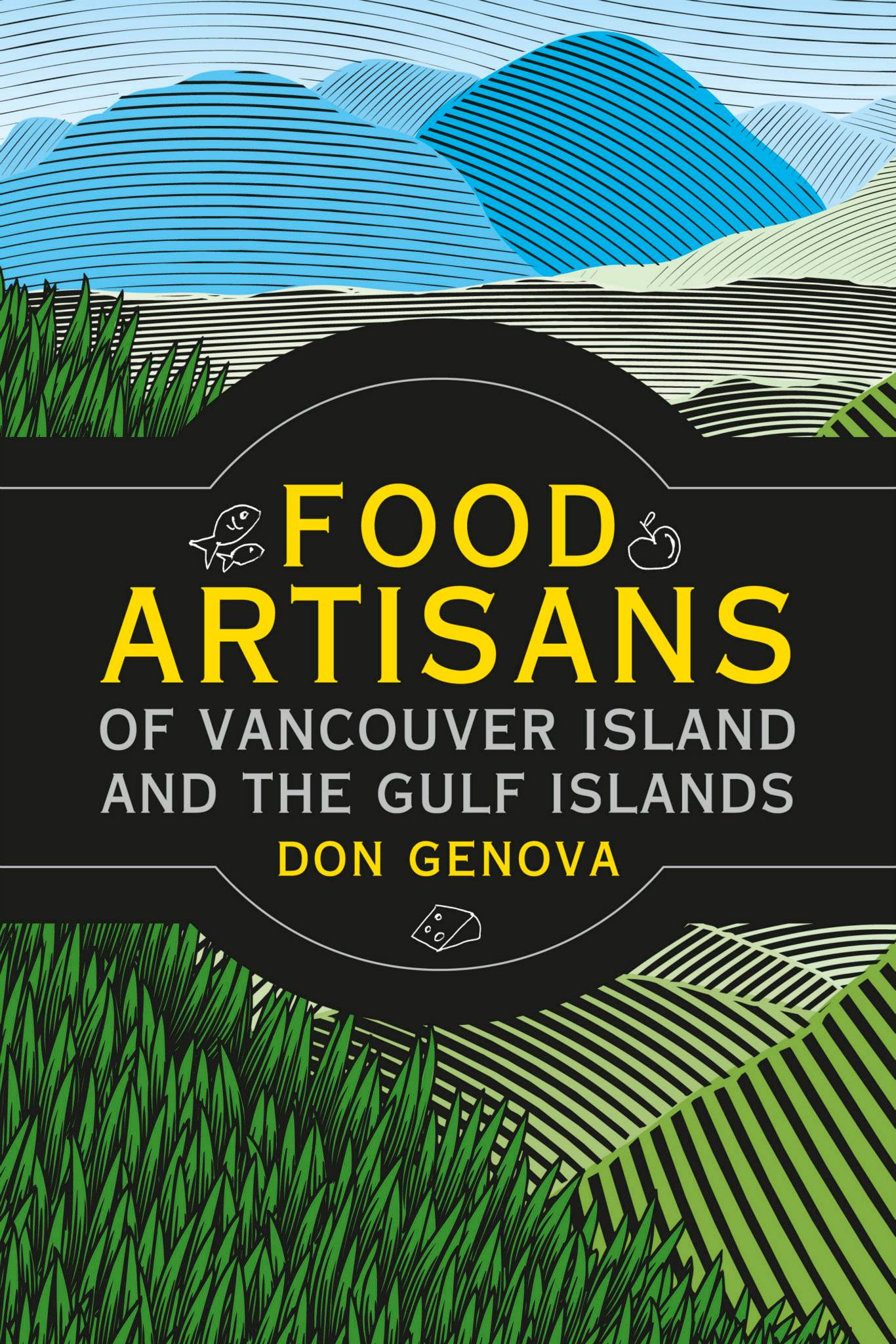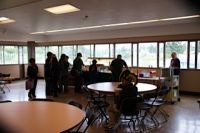 Getting Ready for Lunch
Getting Ready for Lunch
Breakfast and lunch programs in our schools have become a necessity to help feed students who might otherwise have to go hungry. Most of them rely on grants and donations of some sort, as in the case of the lunch program I talked about today on CBC Victoria’s All Points West program.
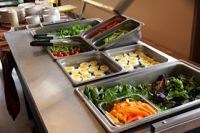 Salad Bar
Salad Bar
But this is a program with a difference. It’s a ‘soup and salad bar’ program being run at the Shoreline Community Middle School near View Royal, kids aged 7 to 14. The school has a French immersion program and also has a significant numbers of First Nations students, and there is a strong connection with the Songhees Nation when it comes to certain programs, including the lunch program. The first thing I noticed about this schools connection to food was a small chicken coop and container garden not far from where I parked my car. Then I went into meet Kim Strom, the school principal. She took me to the ‘dining room’ where the soup and salad bar was being set up for lunch, and explained why Shoreline Applied for a grant to get this program running: “One of the things we like to commit to here at the school is giving everyone the opportunity to get a good meal, and we feel that it should be organic and as local as possible, within a 20-mile limit if we can, and featuring native and traditional foods as well. For some of the students in our lunch program this is the only meal of the day they get, so we want to make sure we are getting it from sources as close to the school as we can.”
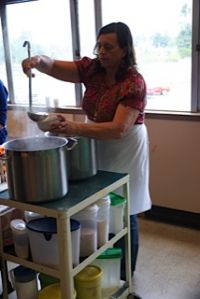 Maureen Greive
Maureen Greive
Local, organic, native, traditional…these are not words you would normally associate with a school lunch program, but that’s what they wanted to offer at the school. I’ve observed some breakfast and lunch programs in the past and kids were getting chocolate milk and sweet cereal for breakfast because that’s what has been donated to the programs. Not necessarily the best food nutrition-wise for the kids. But they made this conscious decision at Shoreline to try to source as much food as they can that is local and organic, and that’s turned out to be the main job of Maureen Greive, who is normally an education assistant at the school, but I would really call her the food and beverage manager these days, and also the main cook and shopper: “It started out with applying for the grant from the Agriculture in the Classroom program. Then I had to put a team of people together to make it happen, and since I’m the main cook, I’ve also been out talking to local farmers and trying to find organic local chickens and get the best price.”
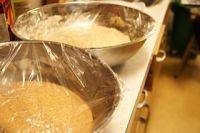 Focaccia Dough
Focaccia Dough
The grant was enough to get them started with the equipment they needed for their kitchen, and some of the cost is recouped from kids at the school who can afford to purchase the soup and salad bar at five dollars a meal, and Maureen describes a pretty good meal: “They get a choice from two different soups, with fresh made focaccia bread we make right here, salad greens and lots of other veggies with dressings that we make as well, nothing comes out of a can, nothing comes out of a bottle. We were worried a little that the kids wouldn’t like having salads since there is sometimes trouble getting them to eat things that are green, but they’ve been loving them and we’ve been getting lots of support from parents who have been sending emails and telling us that they’re happy we started this so it’s all really exciting to see.”
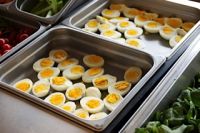 Hard-boiled local eggs
Hard-boiled local eggs
I could see that the kids were very excited to chow down on yesterday’s lunch, an organic chicken soup or spicy Mexican bean soup, and along with all the salad bar greens and other veggies there were some gorgeous hard boiled eggs sliced in half so you could see those lovely yellow yolks that tells you they are from the farm down the road and not battery layer hens. There’s a couple of more upsides to this, the kids that volunteer to help make the soups and salads are getting valuable kitchen training that they can use as a skill later in life, and there is a local chef who acts as an advisor to the program, and kids will also have the opportunity to learn about and taste traditional aboriginal foods, something Butch Dick of the Songhees Nation was there watching the kids chow down and wants them to have a chance to somehow experience a way of life he grew up with: “I think that’s the only way to get them to try foods that I grew up with. I never even knew what a hamburger was until I was around 16 years old. Most of our diet consisted of things from the ocean, not fast food or stuff that you buy from corner stores.” Butch figures he should get his hands on some halibut heads or salmon heads to toss into a fish soup, the kind of soup he grew up on.
Do you know of an innovative school lunch or breakfast program like this one? Let me know in the comments section…

